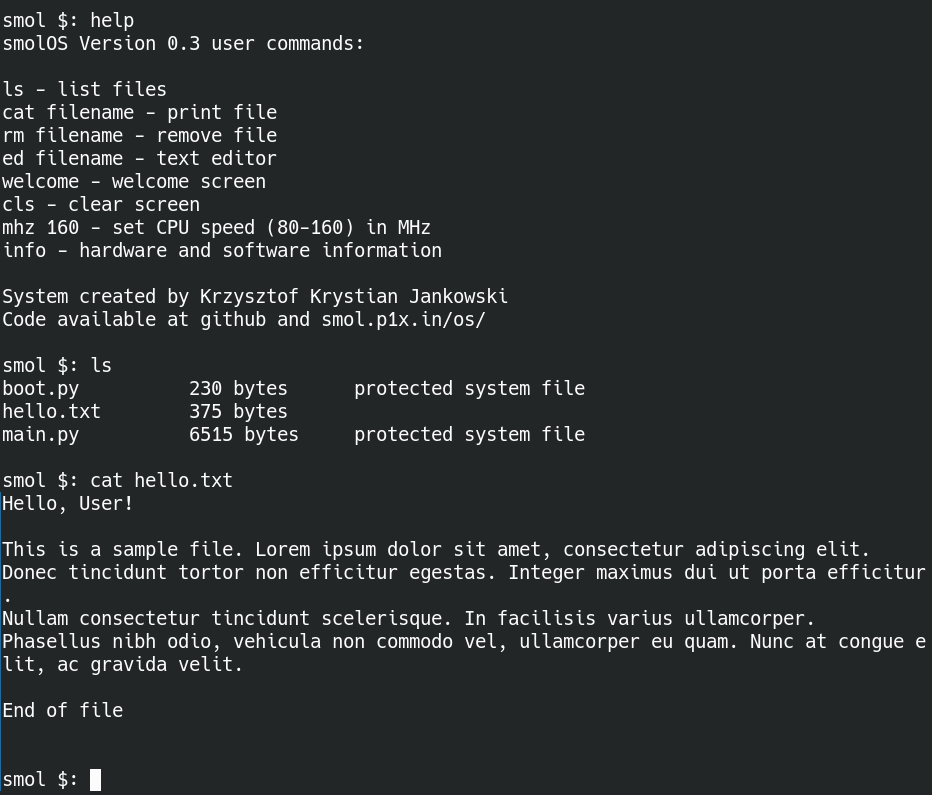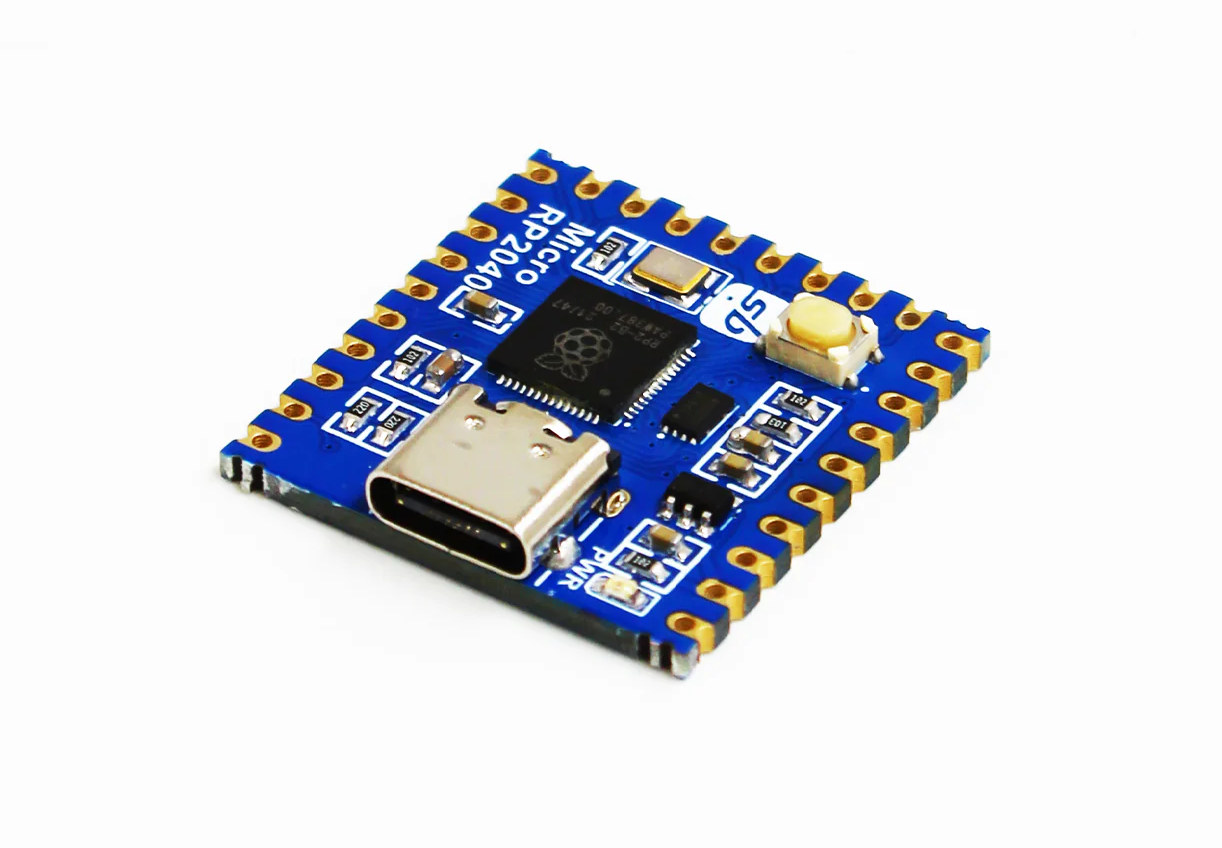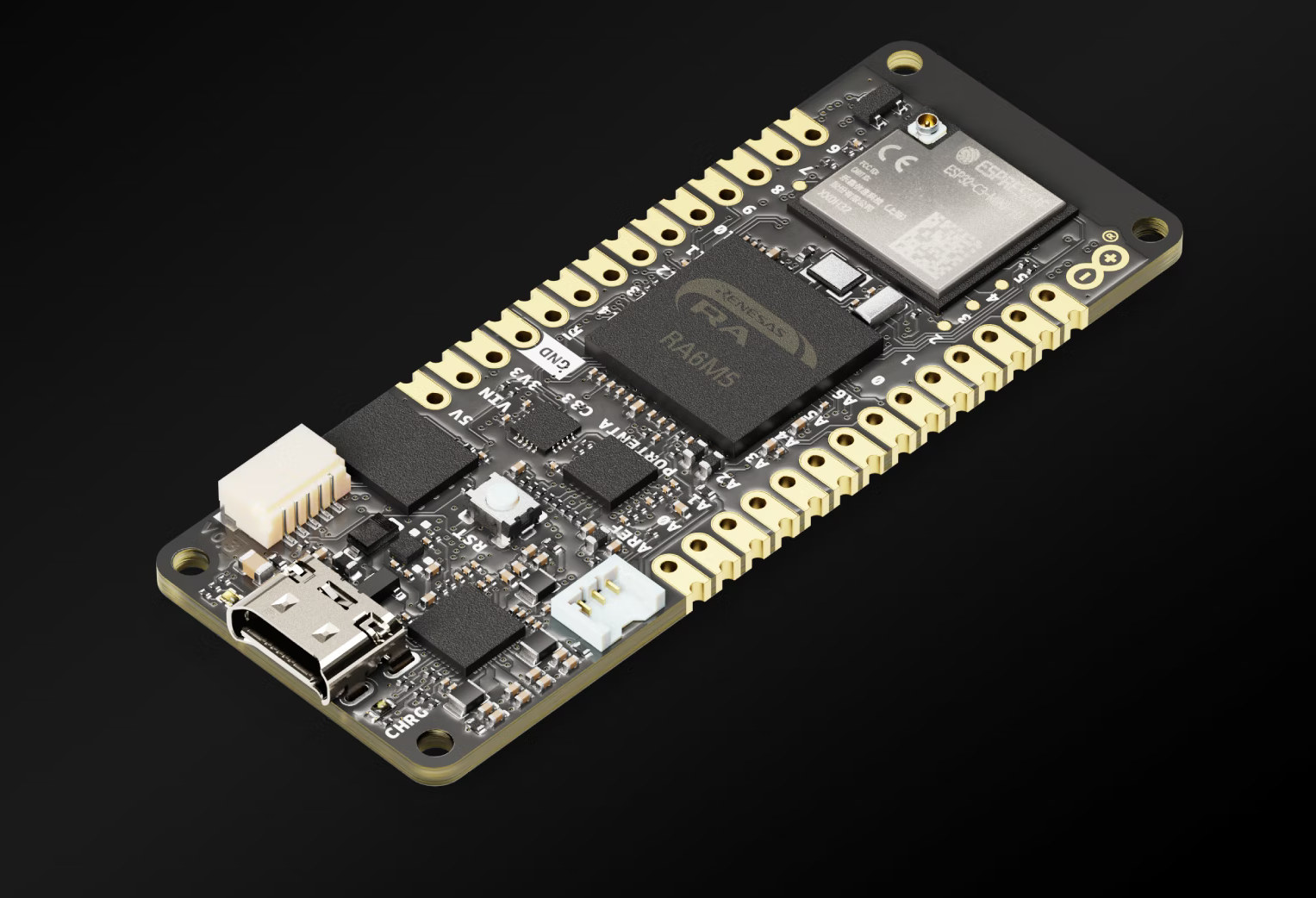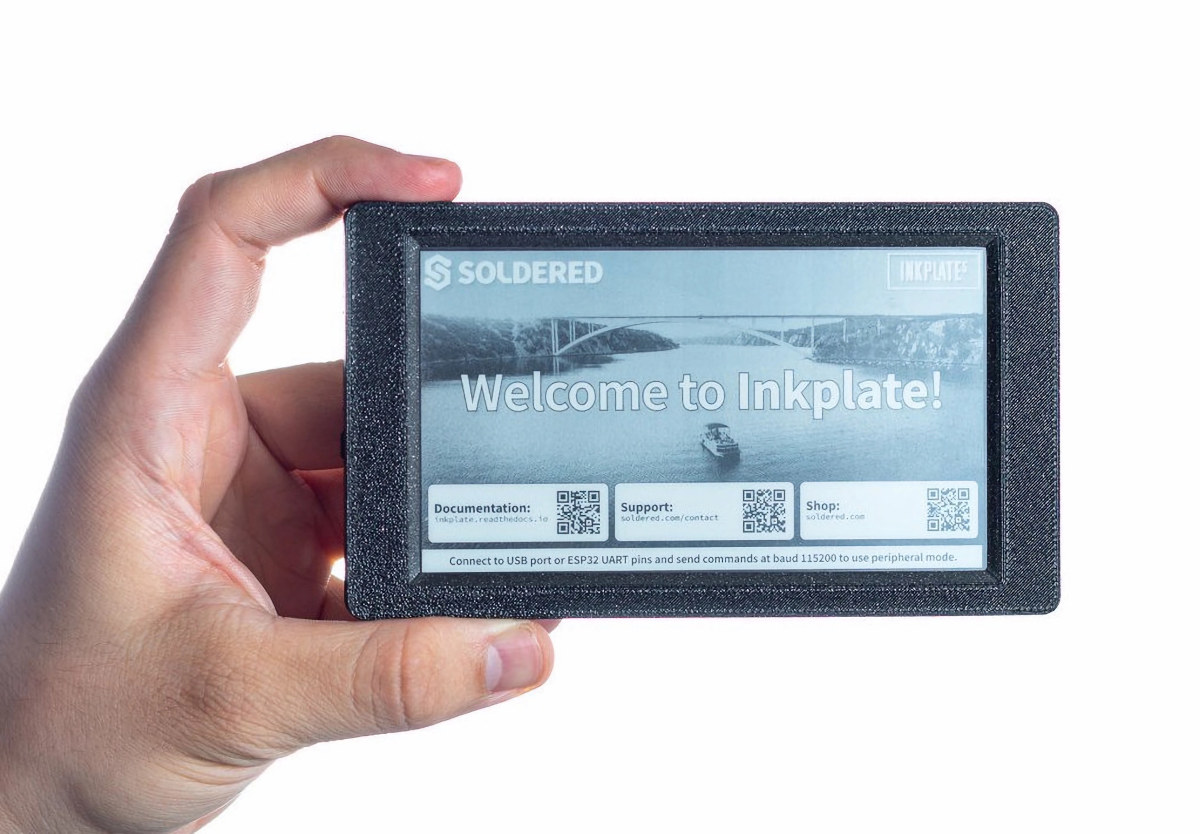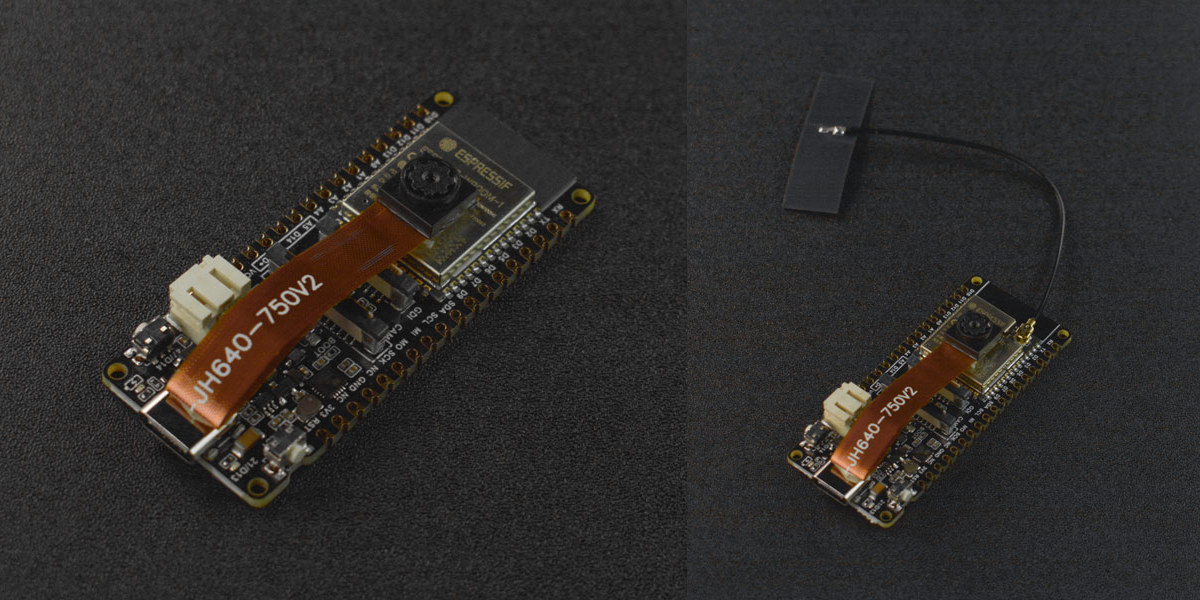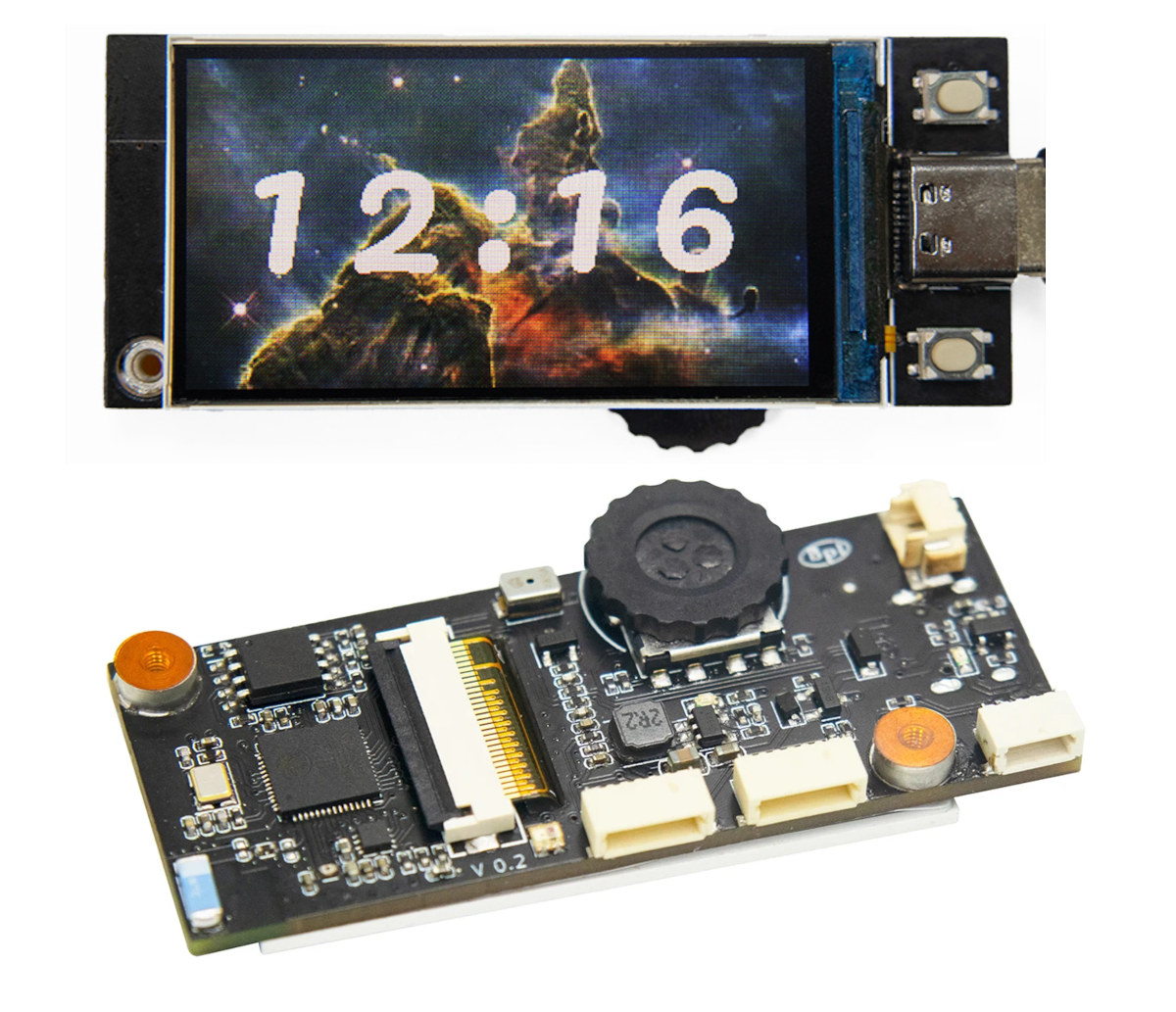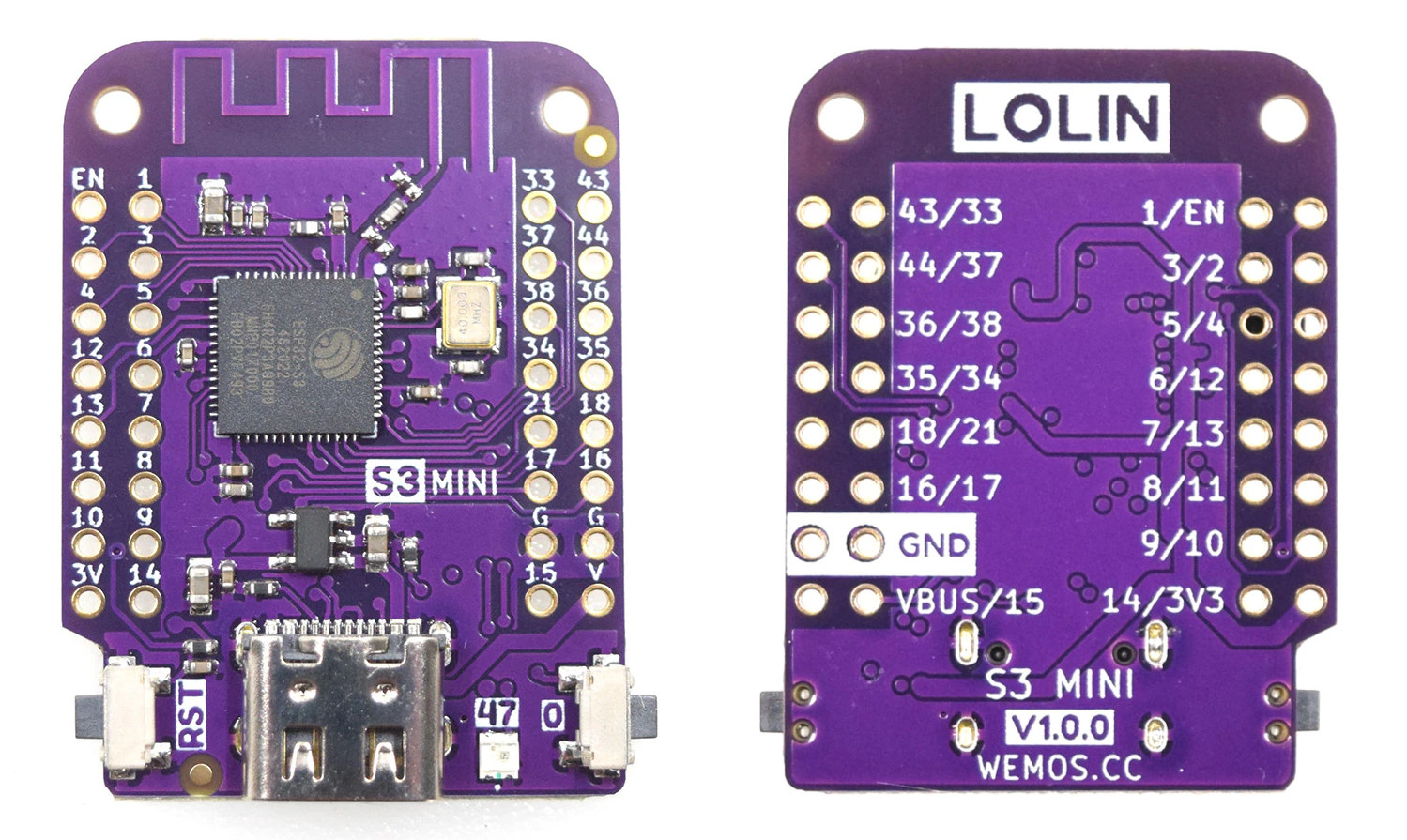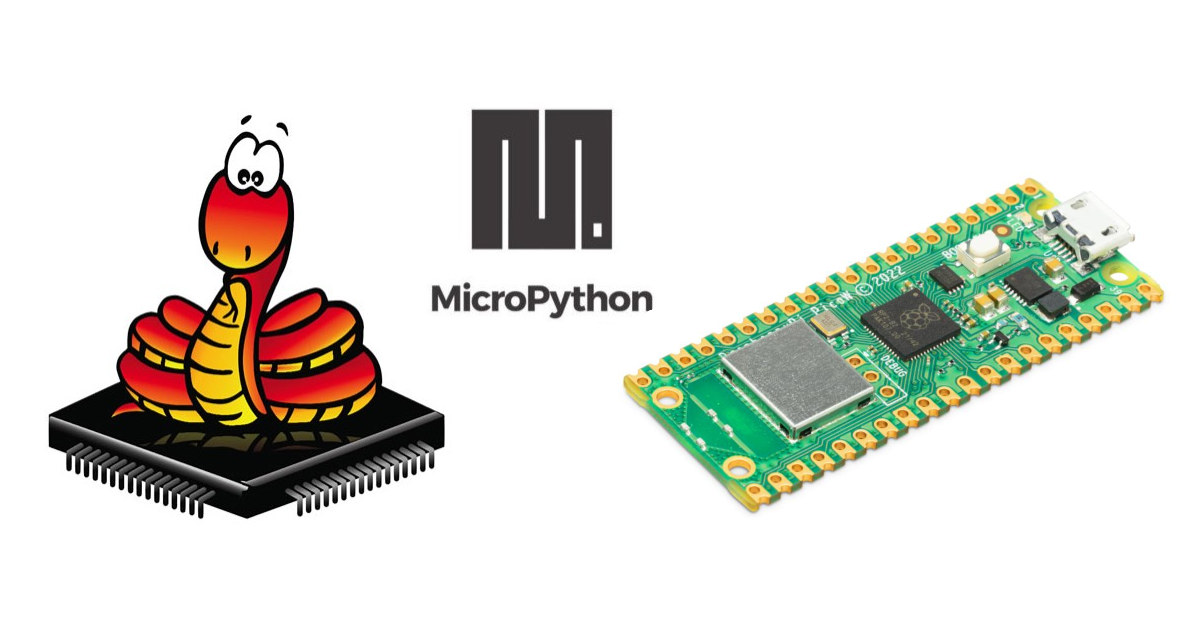smolOS (pronounced small OS) is an open-source, lightweight MicroPython program that implements a POSIX-style (Linux-like) command line interface for the ESP8266 WiFi microcontroller. Krzysztof Jankowski (w84death) designed smolOS to be easy to use, allowing the listing and removing of files and also including the smolEDitor which, as its name implies, is a simple text editor. There are currently eight commands with the familiar ls, cat, and rm, plus ed to launch the text editor, welcome to show the welcome screen above, cls to clear the screen, mhz to set the processor speed to 80 or 160 MHz, and info to display some hardware and software information. The project looks to be a work in progress, and the developer highlights the editor is at the alpha stage of development, so more features may be implemented over time by Krzysztof himself or by the community of developers. I also assume other microcontrollers […]
Micro RP2040 is a tiny Raspberry Pi RP2040 module with a USB Type-C port, 28 castellated & through holes
SB Components’ Micro RP2040 is a tiny module based on the Raspberry Pi RP2040 Arm microcontroller with up to 23 GPIOs and a USB Type-C port for easy powering and programming. Ever since the Raspberry Pi RP2040 dual-core Arm Cortex-M0+ microcontroller was released, companies have been making tiny modules based on it. Some come with a USB Type-C port such as the Pimoroni Tiny 2040 and the Adafruit QT Py RP2040 boards, while others focused on providing a smaller form factor for soldering only with design such as the RP2040 Stamp or the minuscule 12x12mm Femto module. The Micro RP2040 module comes with a USB-C port and more I/Os than competing modules thanks to a slightly larger 25 x 24.95mm design. Micro RP2040 specifications: MCU – Raspberry Pi RP2040 dual-core Cortex-M0+ microcontroller @ up to 133 MHz with 264kB of SRAM Storage – 2MB QSPI flash USB – USB Type-C […]
Portenta C33 is a $64 Arduino Pro board based on Renesas RA6M5 Arm Cortex-M33 MCU
Arduino Portenta C33 is the latest board from the Arduino Pro family which the company dubs a “high-performance, low-price” solution based on a 200 MHz Renesas RA6M5 Arm Cortex-M33 microcontroller and equipped with a ESP32-C3 Wi-Fi and Bluetooth Low Energy module. The new board provides a cost-effective alternative to the Portenta H7 and X8 boards, but still offers wireless connectivity, a secure element for industrial-grade security, and compatibility with Portenta, MKR, and Nicla components. Portenta C33 specifications: Microcontroller – Renesas R7FA6M5BH2CBG Arm Cortex-M33 microcontroller @ up to 200 MHz with 512KB SRAM, 2MB Flash, Arm TrustZone, and Secure Crypto Engine 9 Storage – 16 MB QSPI Flash Connectivity 10/100M Ethernet PHY ESP32-C3 WiFi and BLE module USB – 1x USB Type-C high-speed port with Power Delivery support I/Os via 2x 80-pin high-density connectors, Arduino MKR headers with castellated hole, and a 5-pin I2C connector Storage – SD Card Networking – […]
Inkplate 5 – A 5.2-inch wireless e-paper display programmable with Arduino or MicroPython (Crowdfunding)
The team at Soldered Electronics has been designing Inkplate ESP32-based e-paper displays ever since the first 6-inch model was launched in 2019. The latest Inkplate 5 comes with a recycled 5.2-inch E-Ink (e-paper) display with refresh times of only 0.19 seconds, and programmable with the Arduino IDE or MicroPython firmware. The WiFi-connected display offers a 960×540 resolution, or 213 DPI pixel density, integrates an RTC with battery for accurate timekeeping, two buttons for power and wake/user, and I/O expansion via headers and an easyC/Qwicc connector. Inkplate 5 specifications: Wireless module – Dual-core ESP32 processor with Wi-Fi 4 & Bluetooth 4.0 (BLE) connectivity, 8MB flash, 4MB PSRAM External storage – MicroSD card socket Display – 5.2-inch, 960×540 e-paper display with 213 DPI pixel density Refresh times: full refresh in just 1.02s (1-bit and 3-bit) and partial refresh in 0.19s (1-bit) USB – 1x USB Type-C port for programming and power Expansion […]
FireBeetle 2 ESP32-S3 camera board ships 16MB flash, 8MB PSRAM, PCB or external antenna
DFRobot “FireBeetle 2 ESP32-S3” is a 2MP camera board with ESP32-S3N16R8 dual-core WiFi and Bluetooth microcontroller fitted with 16MB flash and 8MB PSRAM, and offered in two versions: a more compact variant with a PCB antenna, and one with an external antenna offering a better signal quality. The FireBeetle 2 ESP32-S3 also features two rows of I/Os with GPIO, I2C, SPI, ADC, USB 2.0, etc…, a USB-C port for power and programming, a few buttons, and support for a LiPo battery through a 2-pin JST connector and a charging circuit. FireBeetle 2 ESP32-S3 specifications: ESP32-S3-WROOM-1 wireless module SoC – ESP32-S3FN16R8 dual-core Tensilica LX7 microcontroller @ 240 MHz with 2.4 GHz 802.11n WiFI 4 and Bluetooth 5.0 LE connectivity Memory – 8MB PSRAM Storage – 16MB SPI flash Camera – Camera connector fitted with 2MP OV2640 camera with 68° FoV, up to 1600×1200 resolution Display – GDI connector for optional 1.54-inch, […]
Banana Pi BPI-Centi-S3 – An ESP32-S3 board with an 1.9-inch TFT display and a rotary encoder
Banana Pi BPI-Centi-S3 is an ESP32-S3 WiFi & BLE IoT board with a 1.9-inch color TFT display, a rotary encoder, and a few I/Os, which offers an alternative to the T-Track ESP32-S3 board with AMOLED and trackball we covered a few days ago. The Banana Pi board also comes with a 2MB on-chip PSRAM, an 8MB SPI flash, a USB Type-C port for power and debugging, two buttons, a buzzer, and an RGB LED. Besides powering the board with its USB-C port, you can also connect a LiPo battery with charging support. Banana Pi BPI-Centi-S3 specifications: SoC – Espressif Systems ESP32-S3 dual-core Tensilica LX7 @ up to 240 MHz with vector instructions for AI acceleration, 512KB RAM, 2MB PSRAM, wireless connectivity Storage – 8MB SPI flash Connectivity via ESP32-S3 2.4 GHz 802.11 b/g/n Wi-Fi 4 with 40 MHz bandwidth support up to 150 Mbps Bluetooth Low Energy (BLE) 5.0 connectivity […]
Lolin S3 Mini – Tiny $5 ESP32-S3 board follows Wemos D1 Mini form factor
LOLIN S3 Mini is a tiny ESP32-S3 WiFi and Bluetooth IoT development board that follows the Wemos D1 Mini form factor and supports its equally tiny stackable shields to add relays, displays, sensors, and so on. Wemos/LOLIN introduced their first ESP32-S3 board last year with the LOLIN S3 board with plenty of I/Os and an affordable $7 price tag. But I prefer the company’s Mini form factor because of its size and the ability to select add-on boards to easily add a range of features to your projects. So I’m pleased to find out the company has now launched the LOLIN S3 Mini following the ESP32-C3 powered LOLIN C3 Mini board unveiled in March 2022. LOLIN S3 Mini specifications: WiSoC – Espressif Systems ESP32-S3FH4R2 CPU – dual-core Tensilica LX7 @ up to 240 MHz with vector instructions for AI acceleration Memory – 512KB RAM, 2MB PSRAM Storage – 4MB QSPI […]
MicroPython 1.20 released with Raspberry Pi Pico W support, mip package manager, smaller footprint
Damien George has recently announced the release of MicroPython 1.20 with support for the Raspberry Pi Pico W board., a new lightweight package manager called mip, a smaller footprint thanks to the use of compressed type structs, and many other changes. mip package manager The new mip package manager uses a custom protocol optimized for embedded systems to query and install packages, and intends to replace upip for installing packages from micropython-lib or any URL. Mip can be run directly on a device, as long as it has network connectivity, or via mpremote from a host computer. Damien explains all pure-Python drivers have been moved from the micropython repository to the micropython-lib repository as part of the change in order to make it easier to install the packages needed for a given project. MicroPython is getting smaller The MicroPython binary size has been reduced by many kilobytes for all ports […]


